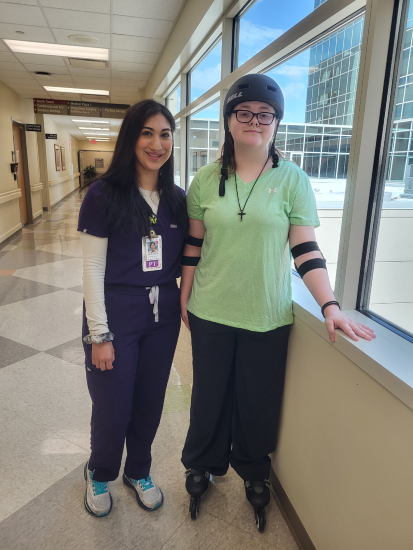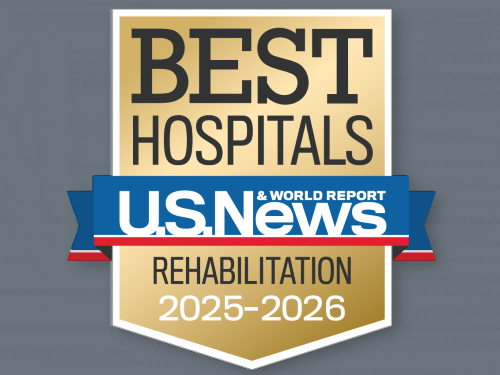 From the moment Melanie Beeson strapped on her first pair of rollerblades at age 3, the world felt like it was hers. By the time she was 8, rollerblading wasn’t just a hobby—it was a passion for Melanie.
From the moment Melanie Beeson strapped on her first pair of rollerblades at age 3, the world felt like it was hers. By the time she was 8, rollerblading wasn’t just a hobby—it was a passion for Melanie.
But when Melanie turned nine, an occasional health issue became more persistent.
“From the time she was an infant, Melanie would sometimes pass out when she got excited or upset,” said her mother, Kim. “We took her to have medical tests, but nothing was found. Around age 5, her fainting stopped. But at age 9 it started up again, and during her episodes she would also have low blood pressure, in addition to an accelerated heart rate.”
School days were interrupted by sudden fainting spells, so Melanie began homeschooling. Walking through the grocery store with her mom turned into an arduous task, as Melanie would often be extremely fatigued or feel faint in the aisles. The girl who used to go to the skating rink regularly struggled to stand for any length of time. Her skates gathered dust as she faced a new reality restricted by her symptoms.
It wasn’t until Melanie was 12, during a visit with one of her physicians, that postural orthostatic tachycardia syndrome (POTS) was mentioned to the family. POTS is a condition that affects blood flow and can cause dizziness, fainting and rapid heart rate, especially upon standing. Two years later, at the age of 14, after months of additional testing, Melanie was officially diagnosed with POTS. Her physician referred her to TIRR Memorial Hermann for rehabilitation.
“TIRR Memorial Hermann-Greater Heights had an outpatient therapist with experience with patients with this condition,” said Kim. “In January 2024, we began seeing Alexandra Castillo, PT, DPT, at TIRR Memorial Hermann every week.”
In therapy, Alexandra and Melanie worked on increasing her stamina—and included a goal to get Melanie back on her rollerblades. They developed a personalized rehabilitation plan that included physical therapy to improve her cardiovascular conditioning, new exercises to help with balance, and breathing techniques to manage her symptoms. The program was rigorous, but Melanie was determined.
“We worked on a stationary bike in addition to a treadmill,” said Alexandra. “We also did balance and activity tolerance activities while using a heart monitor to keep an eye on Melanie’s heart rate. In addition, we did breathing exercises to regulate her autonomic nervous system.”
After seven months of therapy at TIRR Memorial Hermann, Melanie was ready to be discharged. She learned how to manage her symptoms and gradually increased her stamina. The fainting spells were less frequent, and her confidence grew stronger.
To celebrate her final therapy visit at TIRR Memorial Hermann, Alexandra set up a special activity for Melanie: She arranged for Melanie to roller-skate in the hallway as part of her therapy.
“Prior to starting therapy, Melanie was not able to ambulate for increased distances and had difficulty breathing,” said Alexandra. “She was not able to do age-appropriate activities such as swimming, water parks, and rollerblading without frequent rest breaks. She is now attending the roller rink with her friends.”
“We are so pleased with the care that Melanie received at TIRR Memorial Hermann,” said Kim. “Alexandra was awesome. She understood what Melanie was going through, which was great—because we had so much difficulty finding providers that understood Melanie’s condition. Alexandra was empathetic and knew how to respond to Melanie in any circumstance.”

Nationally Ranked Rehabilitation
For the 36th consecutive year, TIRR Memorial Hermann is recognized as the best rehabilitation hospital in Texas and No. 2 in the nation according to U.S. News and World Report's "Best Rehabilitation Hospitals" in America.
Learn more about TIRR Memorial Hermann rankings